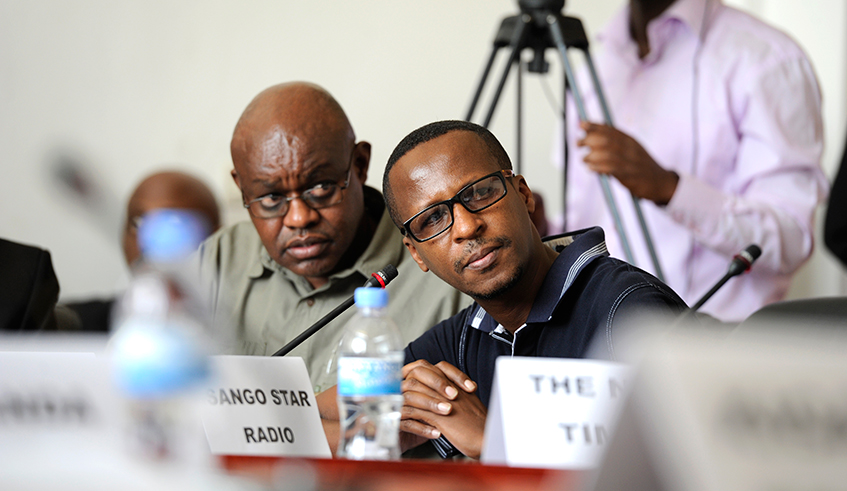

Veteran sports commentator Jean Lambert Gatare tells a sad story of how he picked inspiration from fallen sports journalist Viateur Kalinda, having met with him a day before he was killed in the 1994 Genocide against the Tutsi.
Rwanda still mourns slain journalists among which people like Kalinda stand out. He was a personality that was very synonymous with Rwandan football back in the days when there was only one radio station in the country, Radio Rwanda.
A celebrated commentator, Kalinda is said to have coined very popular Kinyarwanda terms concerning football. Terms like Rwanyeganyeze meaning a goal has been scored (literally meaning: the net has shaken), Kurengura umupira for a throw in, Urubuga rw’amahina for the penalty area, and Ruhago for the ball, among many others.
In 1994, only aged 24, Jean Lambert Gatare was one of the many people who loved Kalinda’s commentaries on Orinfor (turned into Radio Rwanda), and he would later (after the genocide) become a star sports commentator himself, at the same station, before moving to BBC Radio.
Today, Gatare has made a mark for himself as a sports journalist. With an experience spanning more than 20 years, he has done commentary for the national football team matches and the local league, giving football lovers a treat to remember.
Gatare is also known to have coined nicknames for local footballers, for example; Imana y’ibitego for Jimmy Gatete, Igikurankota for Bokota Labama, Igifaru for Mulenda Abedi and Fabregas for Haruna Niyonzima.
The 50-year old currently is the director of Isango Star radio and TV, but he traces desire to start the media career to his relationship with Kalinda, having been one of the people that were acquainted with him.
"I loved his commentary. But, I also knew him personally. The day before he was killed, we had been together,” Gatare remembers.
"His death is one of the saddest things I have ever experienced. It was sad that I met with him just a day before he died. It is one of the things that made me take on the journalism career.”
Kalinda is said to have fled with his family to Kabgayi, from where he would be killed.
In 2011, the Media High Council (MHC) released a list of 50 names of journalists killed during the Genocide. Forty-three were practicing journalists affiliated to several media houses, the other seven were free-lance.
His survival
Gatare, as a Tutsi who was also hunted, ‘miraculously’ survived, but his father and four siblings did not. He survived from his native prefecture of Kibuye.
A year after the well-planned Genocide that claimed over one million lives in just 100 days, in 1995, Gatare entered media, starting with Radio Rwanda where he served for 11 years before he switched to BBC as a sports correspondent.
Since 2011, the soft-spoken works at Isango Star Radio and Television.
Advice to journalists
Gatare urges fellow journalists to work and live by the best of media ethics, fight any bad ideologies – unlike the pre-1994 media – and be active contributors to the country’s development.


